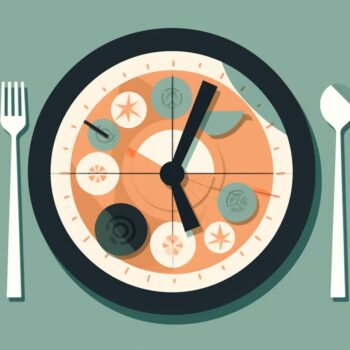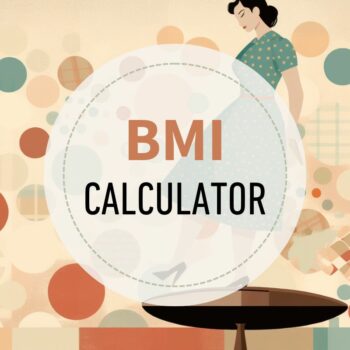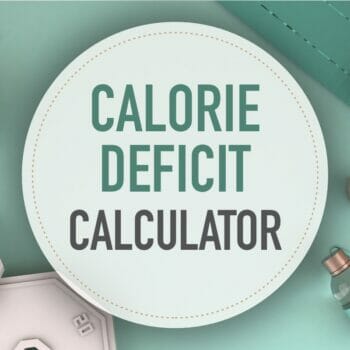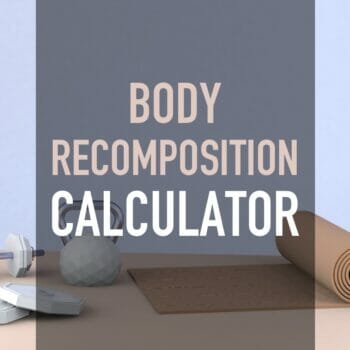TDEE Calculator
Use this TDEE calculator to quickly find your Total Daily Energy Expenditure (daily calorie needs).
Why is TDEE important?
Your TDEE (Total Daily Energy Expenditure) tells you exactly how much you must eat daily to maintain weight.
- Eat more than this, and you will gain weight.
- Eat less, and you will lose weight
This is called a calorie deficit – calculate it here.
Is TDEE and BMR the same?
No, they are not.
Every day your body burns a specific number of calories just by existing. This is known as your Basal Metabolic Rate or BMR.
BMR is based on weight, height, and age but does not include daily activity or exercise.
TDEE is effectively your BMR + extra exercise or activity.
TDEE and BMR are not the same, and as most people do more than lie in bed each day, TDEE is a more helpful tool.
Should I eat my TDEE to lose weight?
No. Your TDEE shows you your daily maintenance calories. If you eat your TDEE, you will stay the same weight.
How do you calculate TDEE for weight loss?
You lose weight by having a calorie deficit.
A calorie deficit means eating less than your body needs to maintain itself.
Ever had more bills than you had money? You had a financial deficit.
A calorie deficit is consuming less energy than you need to stay the same weight.
TDEE Weight Loss Example
Let’s say your BMR is 1,700 calories per day. With some physical activity, you end up with a TDEE of 2,300 calories.
To lose weight, you should consume around 1,840 calories per day.
How much should I subtract from TDEE?
After working with hundreds of successful clients, we’ve found a deficit of 20% from your TDEE is optimum.
You can also achieve a deficit by burning more calories through exercise.
Every effective diet, whether high fat, low fat, high carb, or low carb, uses a calorie deficit to achieve weight loss.
Why shouldn’t I subtract more calories?
Technically you could eat nothing all day and achieve weight loss through having a calorie deficit.
Many well-publicized crash diets put you into a severe caloric deficit. They result in short-term weight loss but will damage your metabolism.
Reducing your calories by more than 20% may lead to muscle loss. This is not desirable as muscle helps burn additional calories.
How long does it take to see results from a deficit?
There are 3,500 calories in a pound of fat, so with a 20% calorie deficit, most people will lose about a pound a week.
Your body can become conditioned to repeated exercise affecting your calorie intake and TDEE.
Not sure of the best path to achieving your health and fitness goals?
So switch things up from time to time! Change exercise routines, intensity, and duration.

How to get results with TDEE and a calorie deficit
Macro counting is a great way to hit your daily calorie target. You lose weight healthily and sustainably.
Counting macros (and flexible dieting) is non-restrictive. It means you still eat your favorite foods – provided they fit within your TDEE and macro goals.
You could eat unhealthy foods and still achieve weight loss. – as demonstrated by the 27-pound weight loss of Dr. Mark Haub.
However, loading your diet with fresh veggies, fruits, nuts, seeds, and lean meats is best. This way, you can feel awesome AND achieve weight loss.
TDEE FAQs
Does it matter what I eat if I count calories?
Yes and no.
You could eat nothing but snack cakes or pizza and still lose weight – if you maintain a calorie deficit.
However, for healthy body composition, a balanced diet is recommended.
Tracking macros will ensure you get enough of each macronutrient and meet micronutrient needs.
Does TDEE include exercise?
Yes, the TDEE is your total daily energy expenditure, so it must include all your movement in 24 hours.
Even non-exercisers are still doing activities around the house – eating, showering, running errands, etc.
Don’t confuse TDEE with Resting Energy Expenditure (REE) or Basal Metabolic Rate (BMR). These two represent energy expenditure if you lay in bed all day and did nothing.
How do I measure my TDEE and calorie intake?
Use the calculator above. It uses the most common variables.
If you want a genuinely accurate TDEE – talk to a coach.
Totaling your calories for the day is usually done with a macro tracking app.
How often should I recalculate my TDEE?
It would be best if you recalculated your TDEE as you lost weight. Do this every 6-8 weeks.
Does this have anything to do with BMI?
Body Mass Index or BMI is a measure of height and weight. It’s not the same thing as TDEE.
How do I use TDEE to gain muscle?
Once you’ve calculated your TDEE in the calculator above, add 10% to the calorie amount. The new calorie amount gives you a good starting point for weight gain.
If you still aren’t gaining, move this to a 20% surplus (use the macro calculator).
View article sourcesSources
- Rising, R., Harper, I. T., Fontvielle, A. M., Ferraro, R. T., Spraul, M., & Ravussin, E. (1994). Determinants of total daily energy expenditure: variability in physical activity. The American journal of clinical nutrition, 59(4), 800-804. study link
- Schulz, L. O., & Schoeller, D. A. (1994). A compilation of total daily energy expenditures and body weights in healthy adults. The American journal of clinical nutrition, 60(5), 676-681. study link
470 Comments


 Menopause Macro Calculator
Menopause Macro Calculator Intermittent Fasting Calculator
Intermittent Fasting Calculator BMI Calculator
BMI Calculator Calorie Deficit Calculator
Calorie Deficit Calculator Body Recomposition Calculator
Body Recomposition Calculator
So why if my BMR is 1573 and my average calorie intake (not counting exersize) is 1000/1100 why am I not losing weight
Hi Jane, First off this calculator is showing TDEE not BMR. Secondly, you should read this article, which explains why less isn’t always best. If You Want to Lose Weight, You Have to Start Eating!
Simple. To the point. Actionable.
You have provided the exact information about losing fat (and in turn weight).
Thank you so much.
I read so many sites trying to understand what i should do to lose about 5kg and there was none that i could fully understand. This site gave me all the answers i was looking for. Thanks!
I have by April 17Th to lose weight 20 lbs for surgery how can I do that? A liquid diet?
Hi Tashieka, That’s simply an unrealistic expectation. Pretty much the only way that will be achieved is by a very low-calorie diet and those are not healthy.
How can I figure Out how much protein, Fat and carbs I should consume if my BMR is 1,249 and my T.D.E.E. Is 1,717
Please see our Macro calculator here.
Hi
My BMR is 1700
And
My TDEE is 2300
How can I lose 10kg in a month
Hi Suraj, Please see our Macro Calculator here.
If u set yourself at a calorie deficit then you will be able to lose approximately a pound of fat a week if you minimize your activity level by 500 while staying under the macro restrictions
Personally losing 10kg in a month isnt recommened and thats my opinion.Many studies show you should aim for 1lb of weight loss per week which is a calorie deficit of 500cals,However you could double that,Aim to eat 500 cals less and burn 500calories through exercise therefor creating a daily deficit of 1000x7days a week and thats 2lbs =1kg weight loss a week
I’ve determined that my body looks better (more defined, less fluffy) with high carbs, high protein, low fat diet. As summer approaches I’d like to lean out & lose some fat. I’m 5’4”, 122 lbs so weight loss isn’t the goal. I lift 3xs a week (moderate active). If I’m trying to maintain weight but cut to lose fat, do I cut by 10% off my TDEE? My macros would look like 1750 at 50% carbs (219g), 15% fat (29g) and 35% protein (153g). ???Based on my goals, do I eat the same amount of calories on workout days or push my calories to 1900? Thanks for your help!
Hi Mel, You have to be in a calorie deficit to lose fat so you would want to deduct at least 10%. You should eat more on days you workout and less on days you don’t because your TDEE is different depending on how much energy you expend.
Hi I’m 1700 over my calorie intake for day will i put on weight
yes
My question is if my BMR is 2370 and that’s the calories my body needs for daily function. Is it safe to say I shouldn’t eat less then that? Because for the longest time I was eating around 1800 calories and working out but I felt so drained all the time.
My BMI is 1477 and reads as being underweight, and the standard is 1587. I am only consuming 1240 calories or less a day, losing 1 1/2-2lbs per week. I lost 22 lbs already in 3 1/2 months. So it’s working. My question is, when I reach my goal if 145 lbs, 5ft 5”, age 51, and want to sustain, how many calories will I be allowed per day. I walk 4 days a week at 3-4 miles per walk and burn about 200 calories in that walk. Thank you
I meant to say BMR, not BMI
Hi Kim, You would enter your new weight of 145 and calculate. Then add an additional 200 for the exercise. You could also use the light activity setting which would be pretty close to the exercise you described.
I have a question. If my BMR is 1500, and my TDEE is 1800, a caloric deficit of 500 would take me below my BMR. Is that safe? Or should I eat to net my BMR and accept that the weight loss with take a while cause I’d only be netting a 300 calorie/day loss?
Hi Jessica, -500 isn’t always a good deduction or rule to follow. A safer amount is 20%. Head over to our Macro Calculator which will do the weight loss calculation for you.
Can someone explain the activity levels for the tdee calc? I’m not sure which to choose.
Hi Camila, You can use this calculator to assess your activity level. It is designed to work with the TDEE calculator.